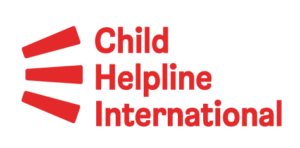A year ago, in response to the ongoing war in Ukraine, which has forced millions of people to flee their homes, we initiated the “Hearing the voices of Ukrainian children and young people: child helplines responding to the Ukraine crisis” project. This project, funded by UNICEF’s Europe and Central Asia Regional Office, aimed to amplify the voices of children and young people affected by the war in Ukraine and to empower the child helplines that support them.
Today –World Refugee Day, a day dedicated to commemorating the strength, courage and perseverance of millions of refugees worldwide – we proudly share three reports summarizing the valuable insights, key recommendations, and best practices gained in this impactful project.
Responding to the Crisis Caused by the War in Ukraine:
Capacity-Building Activities
As part of our commitment to ensuring quality services for children and young people, we focused on enhancing the capacity of child helplines in Ukraine and neighbouring countries. National workshops were conducted in seven locations, bringing together frontline workers from various organizations and helplines. These workshops covered topics critical in times of war, such as conflict-related gender-based violence, human trafficking, trauma-informed care, and the role of counsellors in emergencies.
In this report, we delve into the impact the capacity-building activities have had on the participants. Specifically, pre- and post-workshop surveys showed a significant improvement in participants’ knowledge and skills, spanning all conflict-related issues they were trained on. The participants report that the workshops fostered a positive environment, enabled much-needed knowledge-sharing and communication, and the development of practical solutions.
Voices of Children & Young People
Affected by the War in Ukraine:
Monthly Contacts with Child Helplines in the
Region
To influence policymaking through reliable evidence, we collected monthly data on the nature and volume of contacts received by child helplines in the region. This data allowed us to gain insights into the challenges faced by Ukrainian refugees and their families, as well as local children.
In this report, we delve into the demographic characteristics of the children and young people who reach out to child helplines and include case summaries that provide examples of the issues faced by Ukrainian and local children affected by the war. These case summaries cover a range of topics, including mental health, access to services, physical violence, peer relationships and bullying.
Child Helplines in Emergencies: Roles and Best Practices
The third report examines the indispensable role of child helplines in emergencies and crises, with a specific focus on Russia’s War in Ukraine. It outlines the diverse range of services provided by helplines during such times, from ensuring that children’s basic needs are met and offering essential mental health support, to more indirect services such as advocacy and data collection.
This report highlights the importance of each child helpline to have a contingency plan that addresses human resources, information management systems, coordination, and specific risk analysis for different types of emergencies. The report identifies and promotes best practices, including increasing staff availability, establishing protocols for rapid hiring and training, ensuring counsellor well-being, utilizing technology for information management and remote work, mapping other humanitarian organizations for better coordination, and establishing strategic partnerships.
Implementing these best practices will ensure that child helplines are equipped to respond swiftly and effectively during times of crisis, safeguarding the well-being of children and young people affected by crises, whether they are natural disasters, pandemics, or man-made conflicts.
Through the “Hearing the voices of Ukrainian children and young people: child helplines responding to the Ukraine crisis” project, we have made significant strides in supporting children affected by the war in Ukraine and the child helplines that provide them with invaluable services. Our capacity-building activities have equipped helpline staff with enhanced knowledge and skills, ensuring that they can provide quality services to those in need. By collecting monthly data on the contacts to child helplines, we have gained valuable insights into the experiences of Ukrainian refugees and local children. Additionally, our report on emergency preparedness emphasizes the importance of being ready to respond to future crises effectively. Together, these reports provide a comprehensive framework for action, guiding policymakers, child protection agencies, and humanitarian organizations in their efforts to support children and young people affected by crises.
The publication of these three reports represents a significant milestone in Child Helpline International’s ongoing commitment to amplifying the voices of children and young people around the world. As this project draws to a close, we are mindful of the continued need to enhance the role of child helplines within the child protection system. This is true in times of peace, but especially so during times of war and disaster.
We extend our gratitude to UNICEF Europe & Central Asia Regional Office (ECARO) for its commitment to protecting the rights of children and for its support and collaboration in realizing this crucial project, and to the child helplines participating in the project – for their invaluable cooperation and their dedication in providing crucial support systems for displaced children.
We believe that every child and young person deserves to be heard, protected, and empowered, regardless of their circumstances. By prioritizing the role of child helplines and implementing the recommendations outlined in these reports, we can create a safer and better world for children everywhere, not just in Ukraine and its neighbouring countries, but around the globe.
Anastasia Shuster
Data & Research Officer





